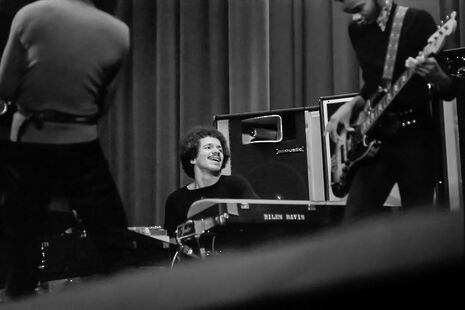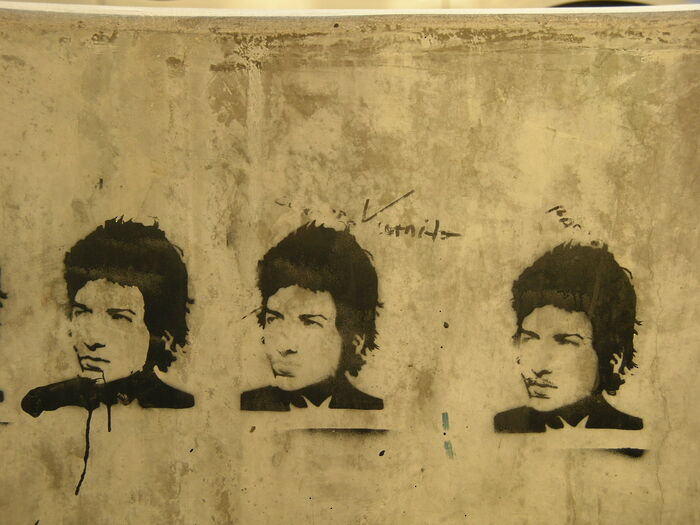The Köln Concert: ‘restrictions stimulate creativity’
Telling the story of the improvised masterpiece, The Köln Concert, William Poulous discusses how the brain uses challenges as a springboard for creativity

In January 1975 Vera Brandes, then Germany’s youngest concert promoter, booked the jazz pianist Keith Jarrett to play at the Cologne Opera House – the first ever jazz concert to be performed there. Jarrett had requested his usual piano – a Bösendorfer Imperial grand – for the performance. After a long drive from Zurich, little sleep, and chronic back pain, Jarrett found that the opera house staff had left a smaller, baby grand Bösendorfer on stage, the piano usually used for rehearsals. It was in poor condition, and even after hours of tuning and adjustment, it was thin in the upper register and weak in the bass, and its pedals didn’t work. Only a few hours before the sold-out concert was scheduled to start, Jarrett refused to play. Eventually Brandes convinced him to play on the broken piano, and he did, avoiding the low and high ends, and using rolling left-hand patterns to strengthen the bass.
To say that he played is slightly misleading; he improvised the whole concert. And unlike the mostly European “free improvisors” of the time, who wanted to liberate themselves from traditional jazz idiom, Jarrett played within this traditional idiom, most notably in what musicologists call “groove passages” or vamps. Basically, he improvised for long periods of time over one or two chords: in Part I he spent almost twelve minutes playing over Am7 and G. Despite these limitations, the audience loved his playing, and the recording of the concert is by far Jarrett’s most popular. In fact, The Köln Concert is the best-selling piano album of all time.
Maybe it would be better to say that people have loved his playing at that concert because of the limitations. The anecdote illuminates a paradoxical truism of the arts: restrictions stimulate creativity. When the brain is forced to overcome an obstacle, only then is it encouraged to think of ways around it. Jarrett had to think of a way to make a bad piano sound good: surely much more stimulating than trying to make a good piano sound good. Any pianist can do that.
“Every jazz musician’s note choice is limited by the chords underneath their playing, because some notes sound better over some chords than others”
Jazz is based on improvisation which, to adapt T.S. Eliot, seems free but isn’t for anyone who wants to do a good job. Every jazz musician’s note choice is limited by the chords underneath their playing, because some notes sound better over some chords than others. The early jazz musicians who wanted to record their music had another restriction: time. The primitive recording technology of the time – the 1920s – allowed tracks to be three minutes long at most. In my opinion, this produced better jazz. I much prefer the solos of Bix Beiderbecke, who had only 30 seconds to impress their audience, to those of Miles Davis, who wastes every bit of eternity.
On average, saxophonists and trumpeters are better improvisers than guitarists and pianists. Trumpeters, for instance, must pause for breath, necessarily splitting their solos into groups of phrases rather than one endless brocade of notes. Some guitarists (almost always male) treat their notes as grains of sand, and try to bury the listener before the song ends. Any trumpeter who tries to do the same risks fainting, although Dizzie Gillespie often came very close. An adage has it that every instrument sounds best when trying to imitate the human voice, and to do that the instrumentalist needs to limit their note choice and the length of their phrases.
Only within restrictions can one reveal one’s talent; the breathtaking cross-court forehand means nothing if there is no net or boundary lines. Musical instruments themselves illustrate this principle: we all sound the same when we exhale, but some people can force an exhalation down the narrow tube of a trumpet and change it to a clear, strong sound coming through the bell. As with instrument, so with phrasing: give two trumpeters five notes, and it will quickly become obvious what each likes to do with them, if they can do anything at all. As John Donne said to his mistress: to enter in these bonds is to be free
 News / University Council rescinds University Centre membership20 February 2026
News / University Council rescinds University Centre membership20 February 2026 News / Hundreds of Cambridge academics demand vote on fate of vet course20 February 2026
News / Hundreds of Cambridge academics demand vote on fate of vet course20 February 2026 News / Judge Business School advisor resigns over Epstein and Andrew links18 February 2026
News / Judge Business School advisor resigns over Epstein and Andrew links18 February 2026 News / Caius students fail to pass Pride flag proposal20 February 2026
News / Caius students fail to pass Pride flag proposal20 February 2026 News / Union cancels event with Sri Lankan politician after Tamil societies express ‘profound outrage’20 February 2026
News / Union cancels event with Sri Lankan politician after Tamil societies express ‘profound outrage’20 February 2026










